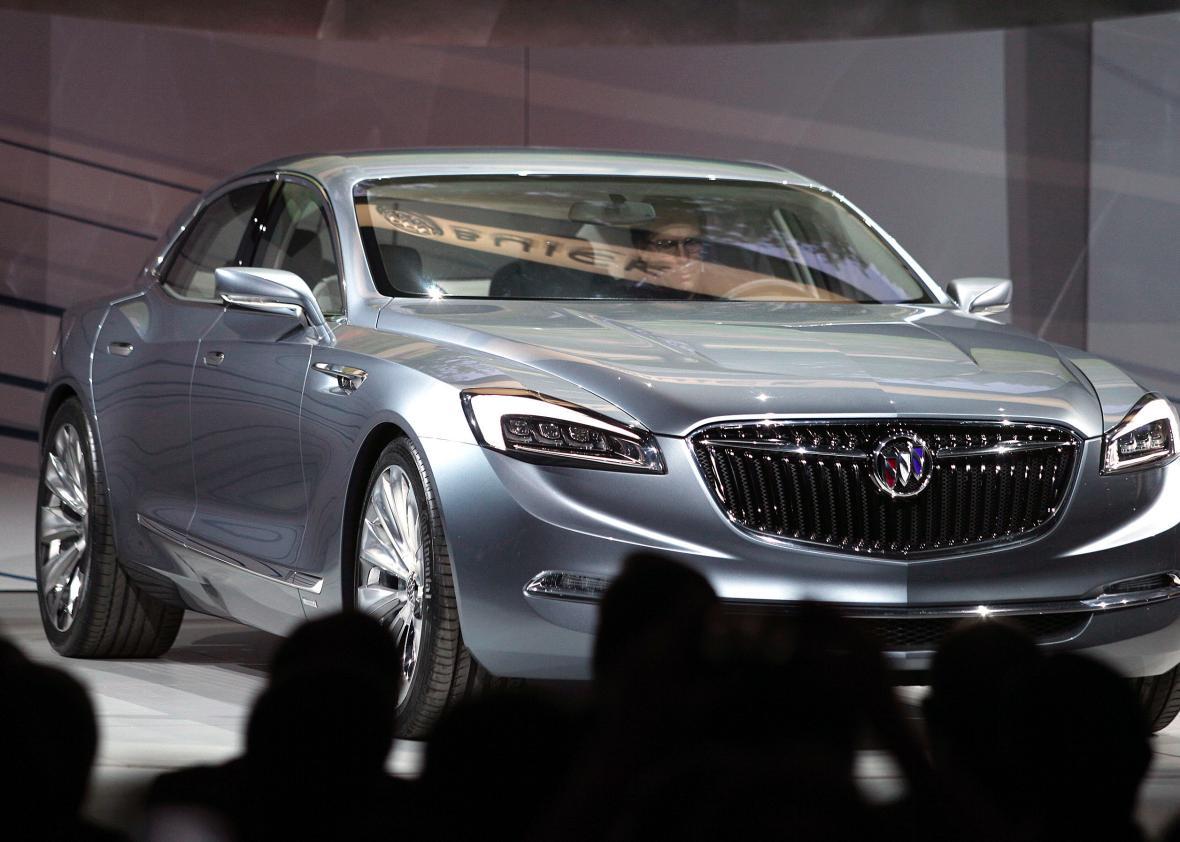In a move that is almost certainly destined to become a campaign talking point for one Donald Trump, General Motors is reportedly planning to sell Chinese-manufactured Buicks in the United States. There’s no evidence that this is a cost-cutting move by the carmaker, and no U.S. jobs are evidently headed overseas, but it could still be a fascinating and controversial test for the auto industry.
What exactly is GM up to? On its face, nothing very exciting. The company is looking to add a midsize crossover to its U.S. Buick lineup. It already happens to manufacture and sell such a vehicle in China, where, unlike in the United States, Buick is a wildly popular brand. Ergo, it has decided to ship 30,000 to 40,000 of them stateside. If you happen to be in the market for a small sport utility vehicle that screams contented middle age, the Buick Envision could soon be a sensible choice.
Now, here’s why it’s interesting.
Car companies rapidly expanded their manufacturing presence in China over the past decade to make vehicles for the country’s exploding domestic market. But the conventional wisdom said that Americans would never buy trucks or sedans made there thanks to fears about quality and safety. GM is testing that theory by importing the Envision.
If the move is successful, GM and its competitors could try to move more of their production to China. What would that mean for the United States? It’s not totally clear. After all, automakers already build lots of cars and trucks for both the North American and global markets in Mexico, where labor costs for manufacturers may now be cheaper than in China. It seems unlikely that GM or Ford would start moving assembly lines from Detroit to Shandong province when they could just go to San Luis Potosí instead. If any production is headed to the People’s Republic, it would logically be work done in formerly low-cost areas of Asia, like South Korea, that aren’t as cheap as they used to be.
There might be other reasons for American workers to worry about Chinese production. Let’s say, for instance, that China’s domestic car market cools down a bit more as the economy slows, and GM suddenly finds itself with lots of excess factory capacity there. The company could theoretically start using it to build more cars for the U.S. rather than open new plants here at home. For now, though, organized labor doesn’t seem too alarmed by the Buick move (the Wall Street Journal reports that “the UAW and GM discussed the move during recent labor talks and appear to have come to an understanding”).
Still, it seems safe to bet that we’ll be hearing about GM and China at the next Republican debate.
